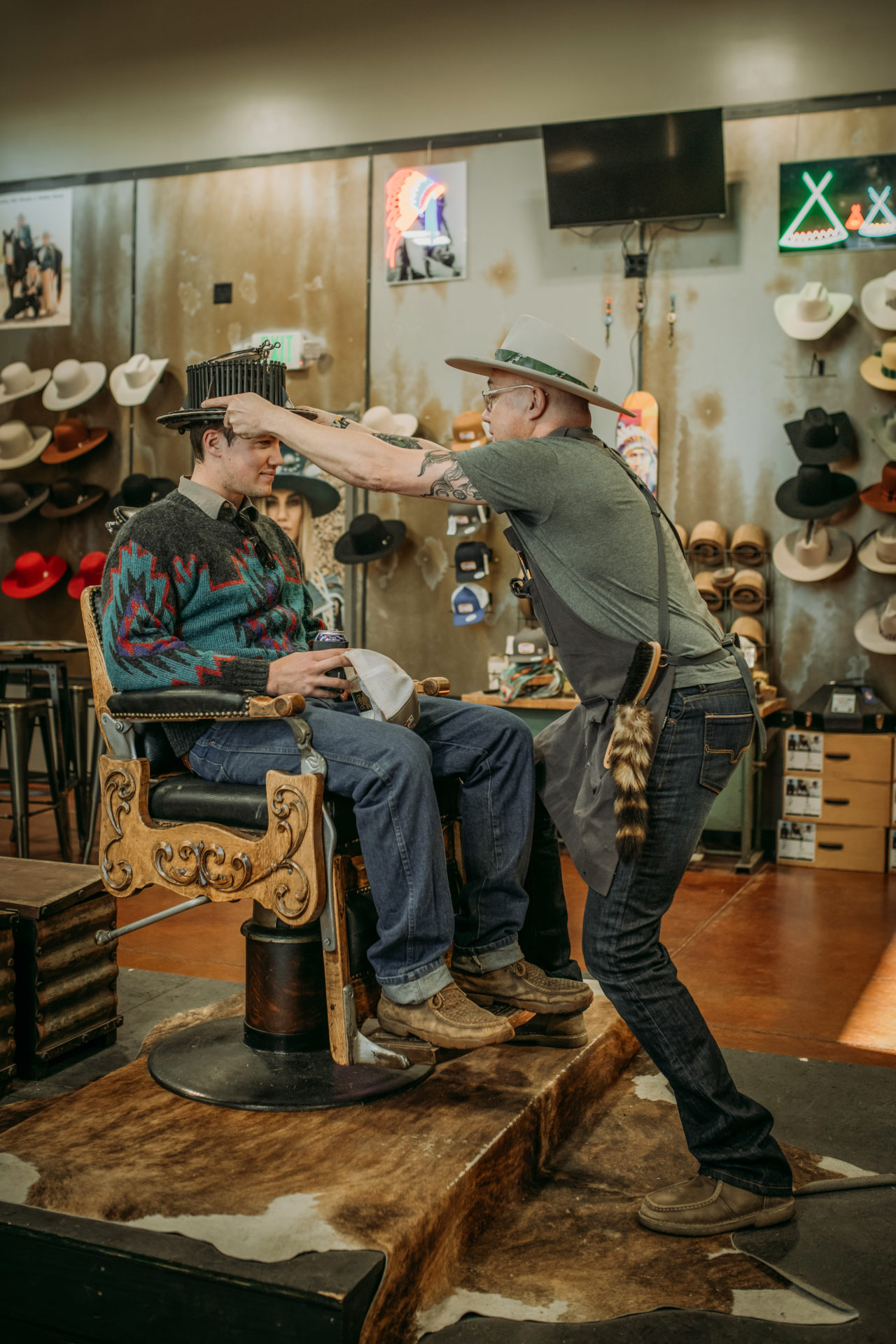By Jen Reeder
After she broke free, she decided to speak publicly about her experiences as part of her healing process. Often, other women would approach Lundstrom to confide they’d had similar experiences – and ask if there were resources in Northern Colorado for trafficking survivors. But at one of her first speaking engagements, a woman shocked her by saying, “You weren’t chained up anywhere. You weren’t kidnapped by an Eastern European crime ring. So what you experienced was just bad choices.”
“It’s really hard for people who have not been in an abusive relationship of any kind to understand just because you are not chained up with metal shackles does not mean that you have the ability to walk out the door and go somewhere,” Lundstrom said.
So in 2014, she founded Free Our Girls, a Greeley-based nonprofit that prevents and responds to sex trafficking, a form of human trafficking. According to the U.S. Department of Homeland Security’s Blue Campaign, human trafficking is “modern-day slavery” and the illegal exploitation of a person through force, fraud or coercion. It encompasses sex trafficking, forced labor and domestic servitude.
For the first two years of Free Our Girls, Lundstrom primarily focused on helping educate local agencies about sex trafficking, particularly to help them identify people who could be victims. (For instance, a domestic violence case might actually involve trafficking.) Many were surprised to learn sex trafficking is different than it is portrayed in movies such as
“Taken.” She would explain that people at risk include anyone experiencing economic instability, including young runaways. Free Our Girls found in a national study that the primary risk factor for sex trafficking is a history of childhood abuse.
College students are another vulnerable population, she said, and traffickers routinely hang out on college campuses and attempt to recruit young people who have moved away from home and might have student loans.
“Those things can create this perfect storm for a trafficker to say, ‘Hey, you can work at this strip club. It’ll be a lot of fun … You can make money and pay off your student loans.’”
To counteract this, Lundstrom organized several awareness campaigns at UNC (where she is now a graduate student), and in 2017, Free Our Girls started offering direct services, including youth prevention. Lundstrom speaks at high schools and works with the Larimer County District Attorney’s office with girls identified as at-risk for sex trafficking. When she warns the girls that traffickers might approach them through social media, they’ll often tell her they’ve already received private messages from strangers with notes like, “You’re really pretty. You could make money, if you want to travel.”
Free Our Girls also offers intervention services – including a sister website with escape planning for sex trafficking victims called Getting Out the Game – and job training for survivors. Plans are in the works to purchase a house in Greeley in order to expand the job training program and offer housing services.
Lundstrom said volunteers and financial donations are always welcome, but the easiest way to help is simply to “do nothing” – don’t purchase women’s bodies. She said it’s a basic case of supply and demand: If men didn’t pay for sex, traffickers wouldn’t have clients. National attention from the Orchids of Asia Day Spa sting that implicated New England Patriots owner Robert Kraft and other prominent executives in soliciting prostitution from a sex trafficking ring in Florida highlights that powerful people regularly contribute to the problem, she noted.

Lieutenant Richard Zeigler of the Windsor Police Department said he didn’t believe there were any current investigations into sex trafficking in the community and hasn’t worked on such a case since he joined the force in September of 2016. But he asserted that “Sex trafficking is always a concern of ours.
“When we get a complaint, or we get information on any issue, we try to investigate it fully,” he said.
The FBI’s Rocky Mountain Innocence Lost Task Force has had successful human trafficking busts in Denver in the last several years, so some traffickers have moved their victims to Northern Colorado, according to Chris Bruno, LPC, a therapist at Restoration Counseling in Fort Collins. Bruno has worked with Free Our Girls to spread awareness among first responders, emergency room staff, police officers, nurses, hotel managers and young people about local sex trafficking.
For the past four years, he’s also run the First Offender Restoration Initiative, a voluntary counseling program for men who have been ticketed or arrested for soliciting prostitution for the first time in Larimer County. (Talks are underway to establish similar arrangements with neighboring counties.) Instead of shaming the men, the idea is to educate them about the realities of sex trafficking and encourage them to talk about what in their personal lives might have led them to this point.
Approximately 120 men, ages 17 to 85, have completed the program since its inception. “Just as those women are in these situations and places because of something that has happened in their life and their stories, so are these men in this place where they are purchasing sex because of something that’s happened in their lives,” he said. During counseling sessions, attendees learn ways vulnerable girls and young women are lured into sex trafficking. It could be a boyfriend who woos her and suggests a trip away from home where he rapes her or films her having sex – and then threatens to show the video to her parents or her church so she feels she can’t go home.
Bruno said the most common comment he hears after a few hours is, “I had no idea.” One man even turned to his arresting officer at the end of a session and thanked her for “saving” him from a life he didn’t want to lead.
“I think changing culture is really what we need to do, not just fighting a crime,” Bruno said. “I have hope for some significant change.”
Jessica Lindner faced a long road to an empowering life in Fort Collins. She was adopted into a family in which her mother verbally and physically abused her during her childhood, then at age 16, she married an abusive man who “beat a pregnancy out of me.” After he was arrested and they divorced when she was 18, she started working in a pet store in Miami, where her older boss started a relationship with her. She didn’t realize he was grooming her for sex trafficking as he got her hooked on drugs and put her up in a motel when she had nowhere else to go.
“How I paid off my debt to him was sleeping with his friends,” she said. “I didn’t even know he was getting money for it at first … They know how to find vulnerable girls who are just looking for love and turn that against you.”
After a few years she was “traded” to a pimp in Orlando, where a network of traffickers shared women, and she eventually came under the control of a john known as “Papa Smurf.” He would keep tabs on her younger sister, and anytime she would get out of line, he would whip out cell phone photos of her sister and threaten that she could be “replaced.” She felt she had to stay to protect her sister.
After five or six years, Lindner and Papa Smurf both were arrested. Lindner was finally able to exit the situation when her sister joined the Navy and was stationed overseas, and Papa Smurf faced a long prison sentence because another woman being trafficked was found dead.
“I found the power to get out, the strength to get out, and I hid for a year,” she said.
Since then, Lindner has remarried, and the couple cares for her three children, including one with special needs. The family decided to leave Florida and start over in Fort Collins, but as a convicted felon for prostitution, Lindner found it challenging to get work in Colorado.
Fortunately, she learned about Free Our Girls. Now she participates in the nonprofit’s job training program and is working toward a degree in social work to become a counselor for Free Our Girls and supervise the job training program.
Lindner speaks publicly about her experiences to inspire others to know that if she can rebuild her life, they can too. Her advice to women currently being trafficked is to contact Free Our Girls through Facebook or the website, and to know: “You’re not alone.”
To get help from the National Human Trafficking Hotline, call 888.373.7888 or text HELP or INFO to BeFree (233733).
The Department of Homeland Security’s Blue Campaign has many resources about human trafficking, including signs to look for. Do not confront a suspected trafficker. Instead, alert local authorities or report suspected human trafficking to 866.347.2423. For more information,
go to www.dhs.gov/blue-campaign.






